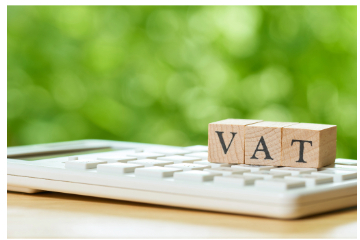
Stay informed about your VAT obligations and payment deadlines to keep your business compliant and penalty-free
Stay informed about your VAT obligations and payment deadlines to keep your business compliant and penalty-free
nderstanding VAT (Value Added Tax) obligations is crucial for any business operating in the UK. Whether your business needs to pay VAT depends on various factors, including your turnover, the nature of your goods or services, and your business structure. Alongside this, knowing the deadlines for VAT payments is essential to avoid penalties and maintain compliance with HMRC (Her Majesty's Revenue and Customs).
Whether your business is required to pay VAT depends on several key factors:
VAT Threshold: If your business’s taxable turnover exceeds the VAT threshold, you are legally required to register for VAT and charge it on your goods or services. As of the current tax year, the VAT threshold is £85,000. If your turnover is below this threshold, VAT registration is optional, though some businesses choose to register voluntarily for various reasons, such as reclaiming VAT on purchases.
Nature of Goods or Services: Certain goods and services are exempt from VAT or subject to reduced rates. For example, some healthcare services, education, and financial services are VAT-exempt. On the other hand, most goods and services fall under the standard VAT rate of 20%, with some eligible for reduced rates (e.g., domestic fuel and power).
Type of Business: Sole traders, partnerships, limited companies, and non-profits all have different VAT obligations. If you operate as a sole trader or a small business, your VAT obligations are the same as for larger businesses if you exceed the threshold. However, non-profits might be eligible for specific exemptions or zero-rated VAT on certain activities.
For detailed advice on whether your business needs to pay VAT, you can visit the VAT Services page on Gondal Accountancy’s website.
If your business is VAT-registered, knowing when to pay VAT is crucial to avoid penalties:
Quarterly VAT Returns: Most businesses submit VAT returns on a quarterly basis. The deadline for filing your return and paying any VAT owed is one month and seven days after the end of your VAT period. For example, if your VAT quarter ends on 30th June, the payment deadline would be 7th August.
Annual Accounting Scheme: Some businesses opt for the Annual Accounting Scheme, which requires only one VAT return per year. However, you will make advance payments throughout the year, with the final balancing payment due within two months of the end of the accounting period.
Monthly VAT Returns: If you prefer to submit returns monthly, perhaps to spread out payments and manage cash flow better, the deadline remains one month and seven days after the end of each VAT period.
To ensure timely VAT payments, you can use several payment methods:
For assistance with making VAT payments, Gondal Accountancy offers comprehensive VAT Returns and Payment Services to help you manage your obligations effectively.
Missing the VAT payment deadline can result in penalties and interest charges. HMRC operates a tiered penalty system, where the longer you delay, the higher the penalty. Repeated late payments can also damage your business’s relationship with HMRC and affect your cash flow.
In summary, whether your business needs to pay VAT depends on your turnover, the nature of your products or services, and your business structure. If you are VAT-registered, it is vital to be aware of your payment deadlines—usually one month and seven days after the end of your VAT period. By keeping track of these deadlines and choosing the right payment method, you can ensure that your business remains compliant with VAT obligations and avoids unnecessary penalties.
If you're unsure about your VAT status or need help with your VAT obligations, consulting a tax professional is advisable. Gondal Accountancy offers expert VAT Consultation Services to provide tailored advice and help you navigate the complexities of VAT.
Disclaimer: Please be advised that the content of this blog is meant to serve as general information only, and should not be considered as tax advice. Given the complexity of tax laws and the potential for regulatory changes, it is strongly advised that you seek the guidance of a qualified tax professional or financial advisor prior to making any decisions based on the information contained in this blog. Please note that neither Gondal Accountancy nor its staff assume any responsibility or liability for any decisions made or not made as a result of the information presented in this article.
Interested in learning more about our Dedicated Accounting Services tailored for Small Businesses?
Get your free, no-obligation consultation from our professional accountants today!